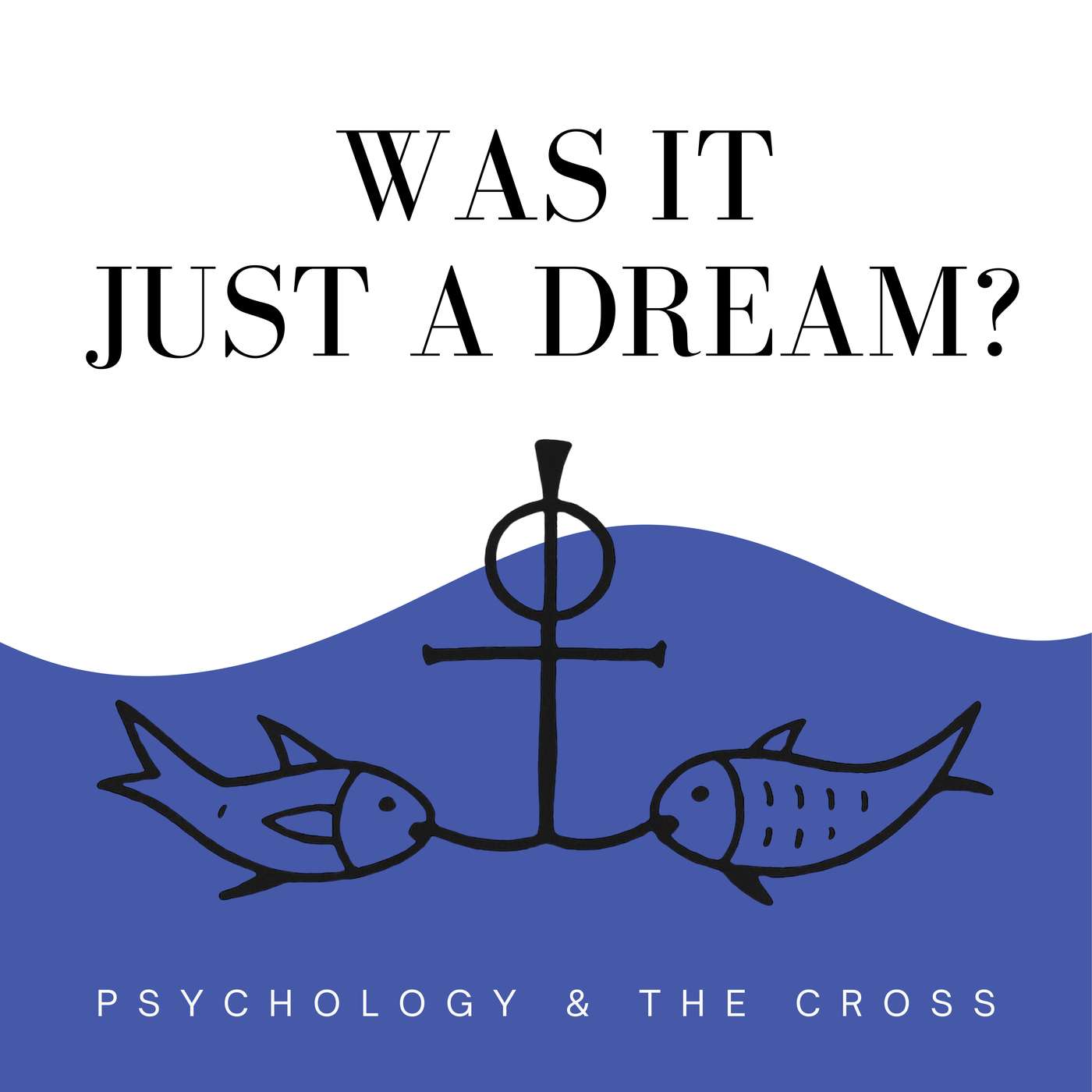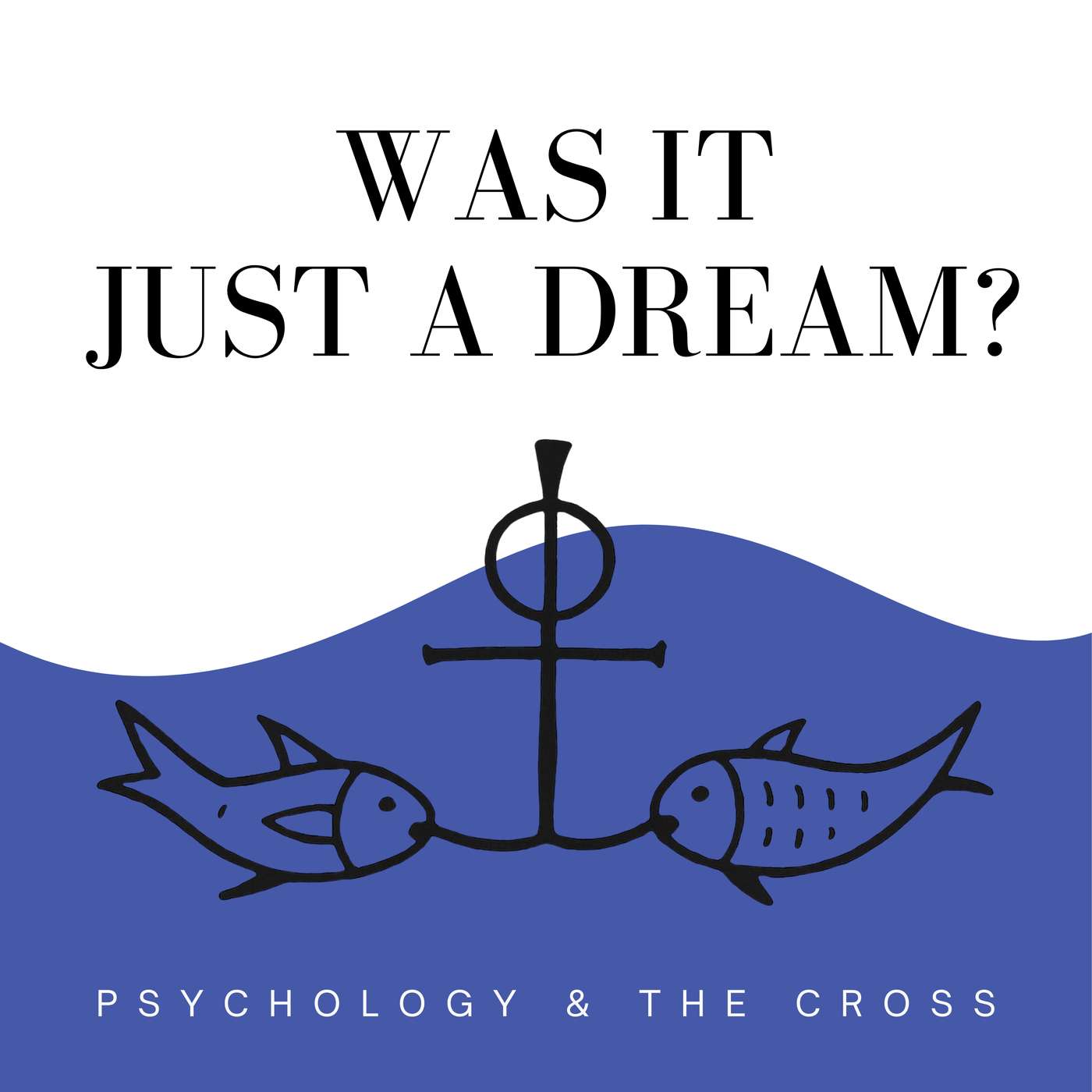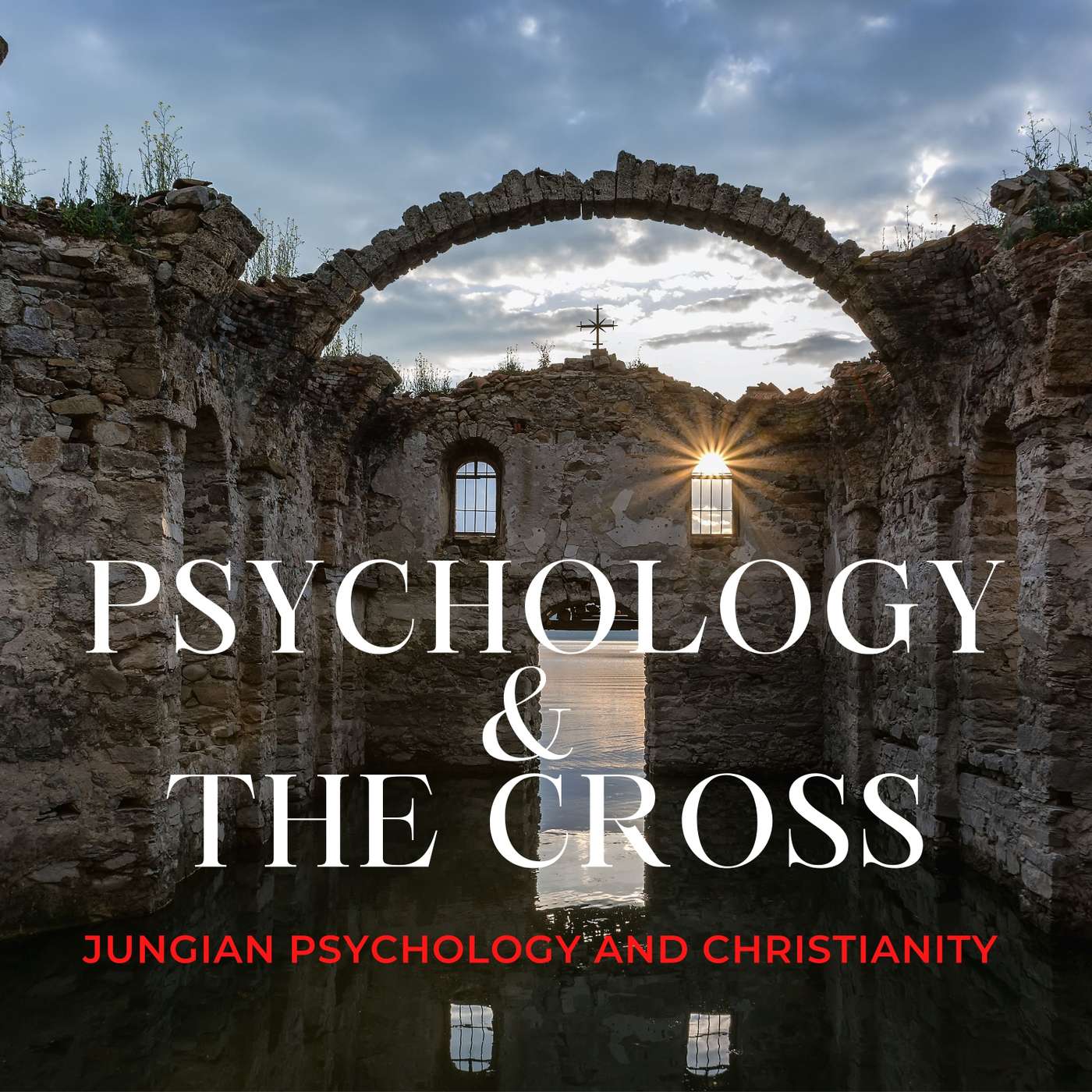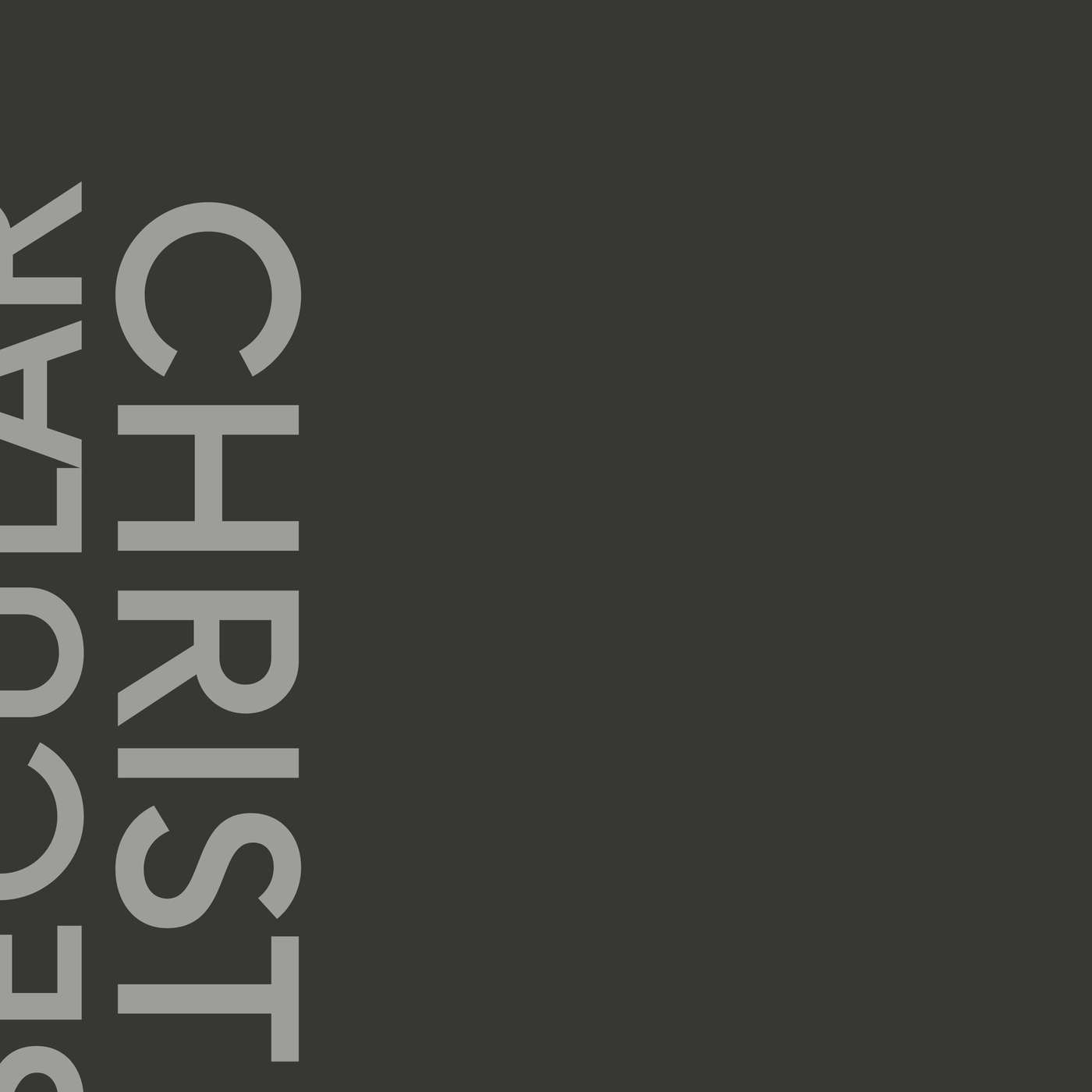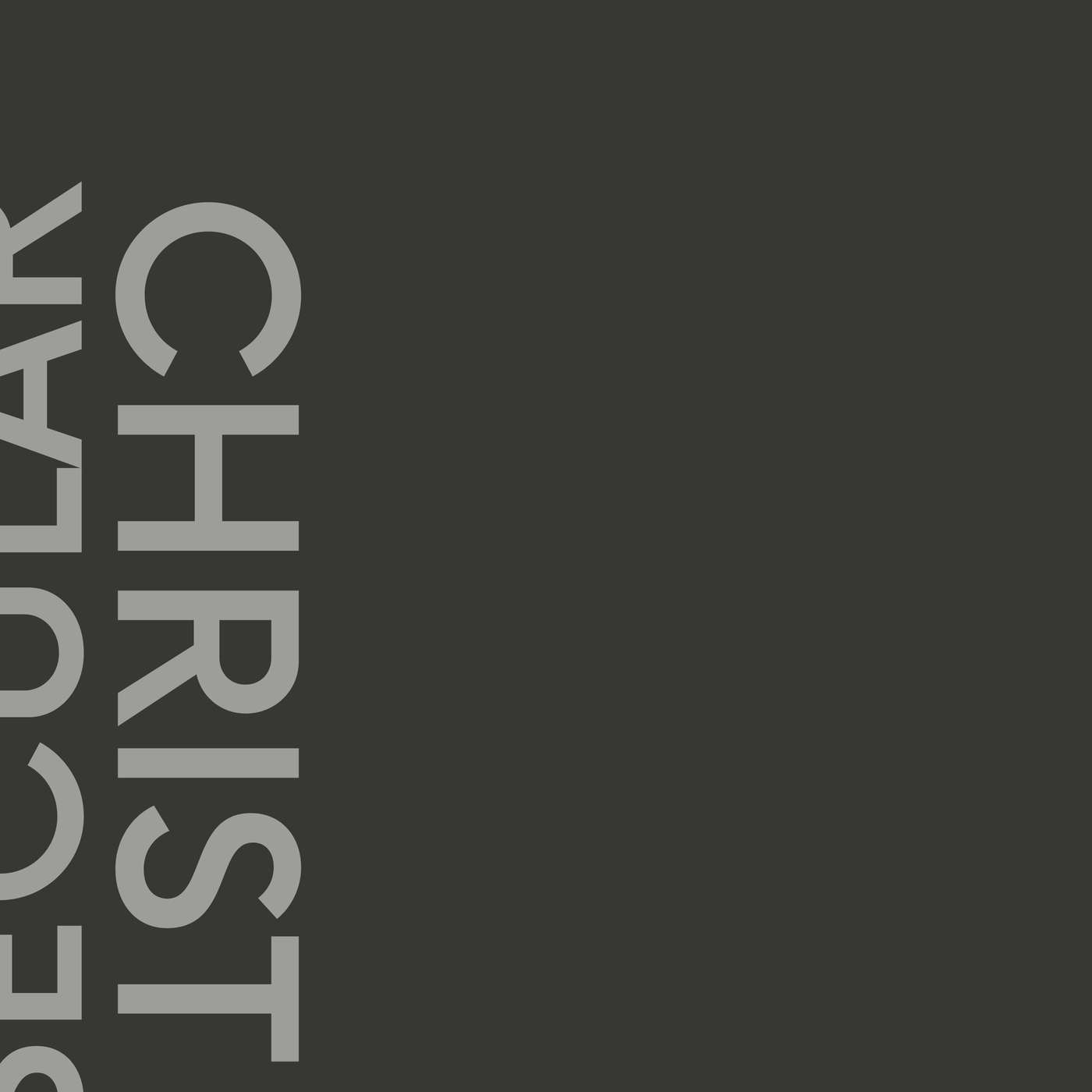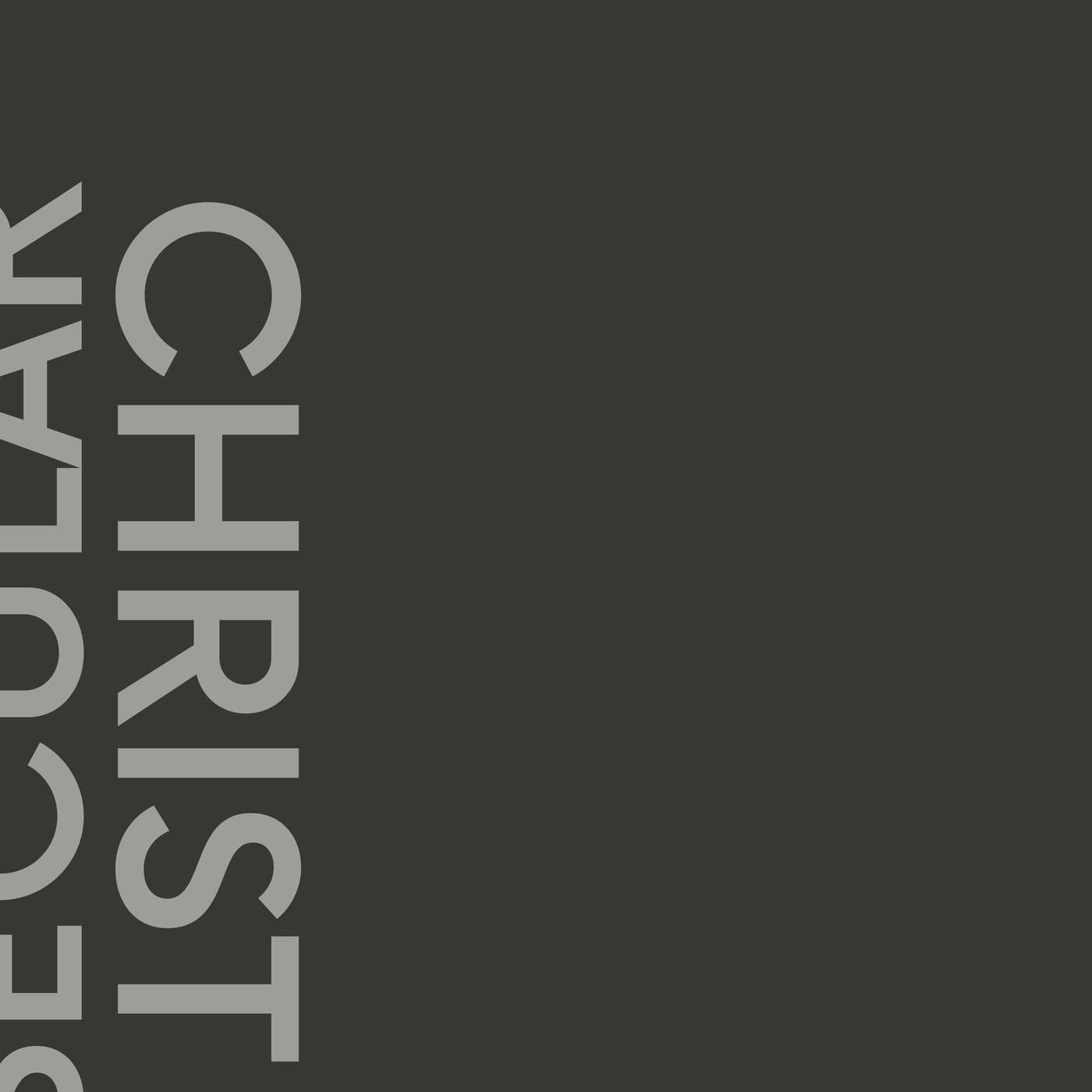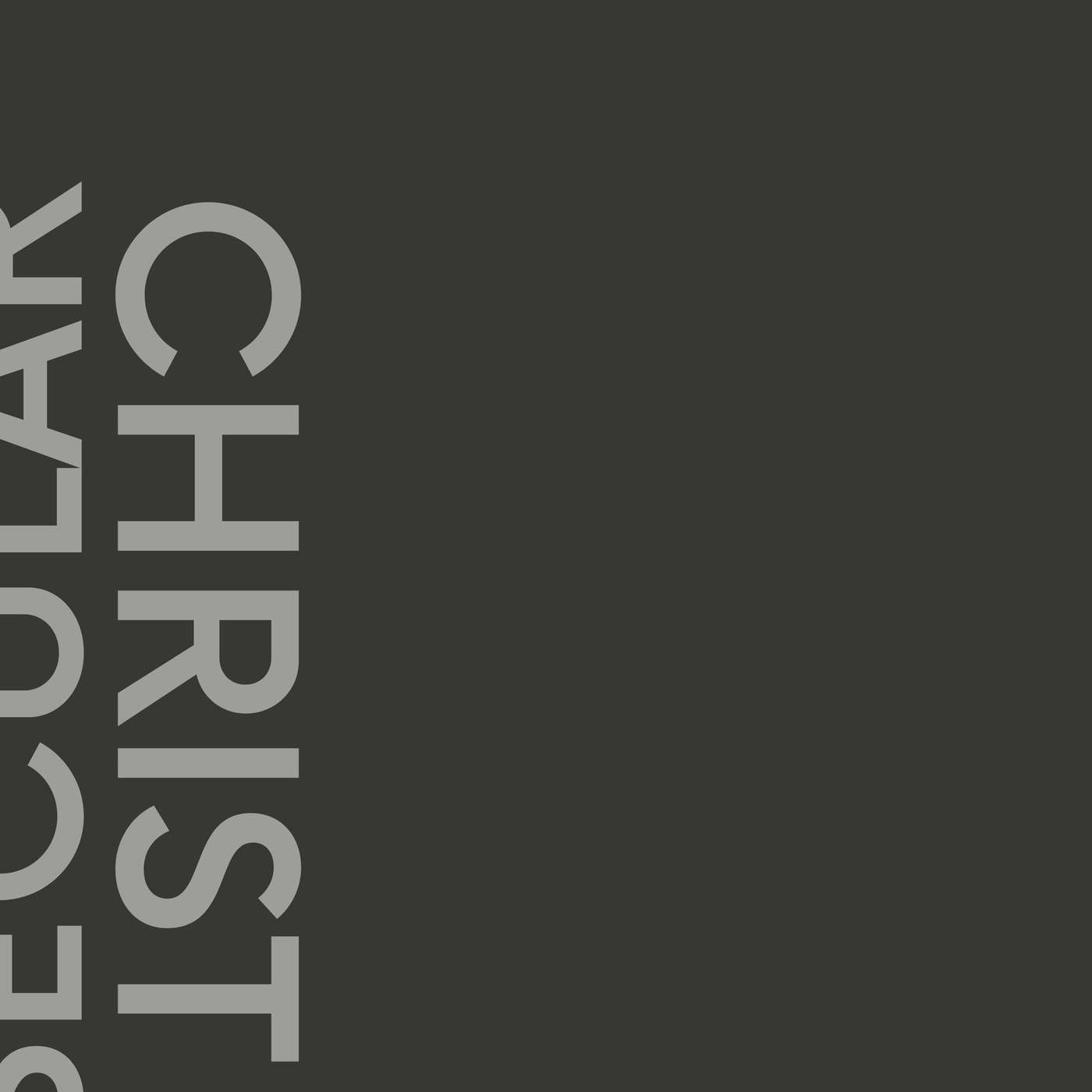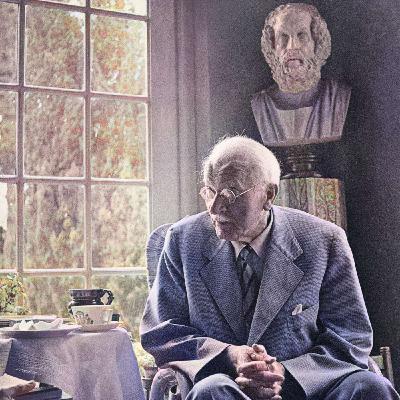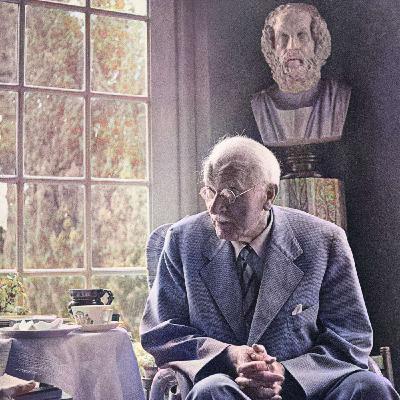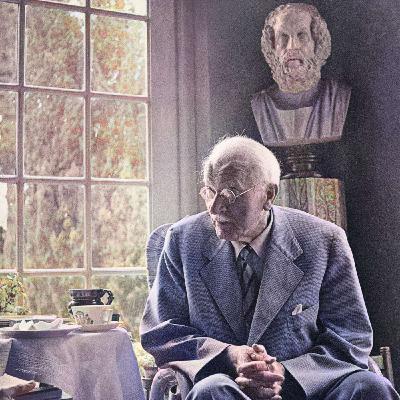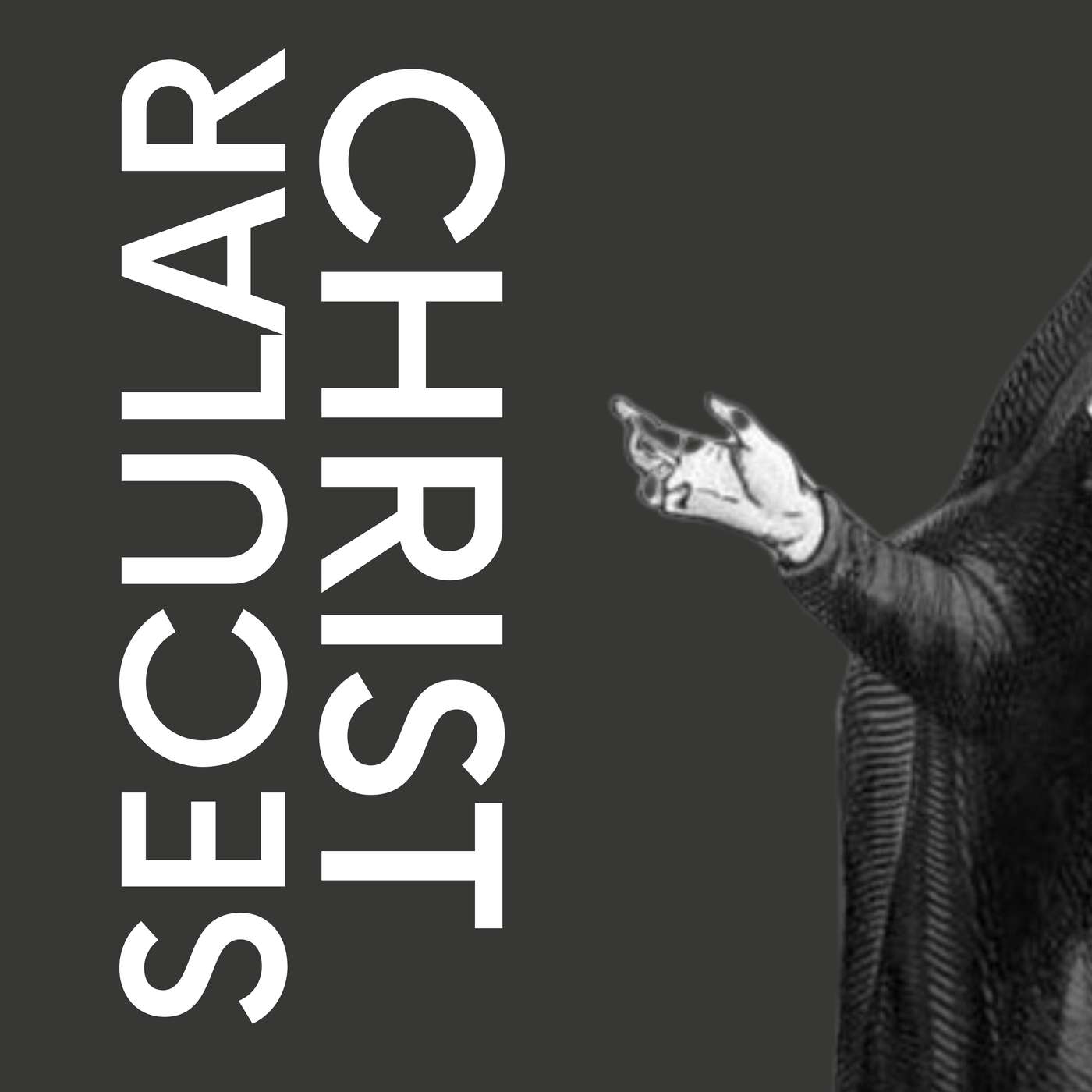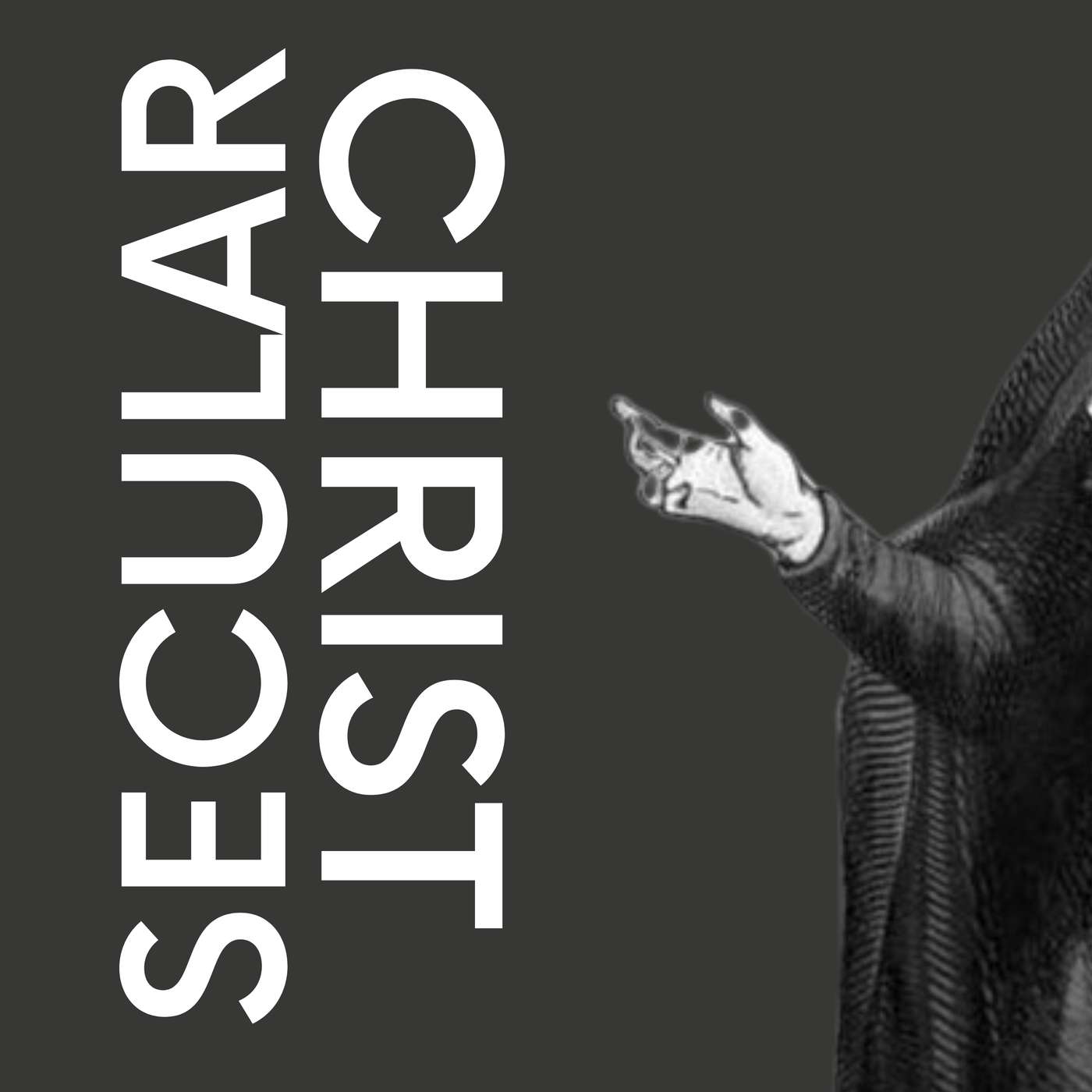Discover Psychology & The Cross
Psychology & The Cross

Psychology & The Cross
Author: Jungian Analyst Jakob Lusensky
Subscribed: 87Played: 366Subscribe
Share
© Psychology & The Cross
Description
Jungian Analyst Jakob Lusensky engages in dialogues and research at the intersection of depth psychology and Christianity for the purpose of individual and cultural transformation.
89 Episodes
Reverse
The first episode of our new podcast series, Was it just a Dream?, is titled “I Don’t Want to Hurt You.” Listen to the dream, and you will understand why. If you’d like to read the full dream or comment on it, go to our Substack page.Music: It was just a dream by Rafael Krux. Courtesy of the Krux Music Publishing Limited Company.
Have you had a dream that stayed with you — one that felt larger than your own life?This is an invitation to join Jungian analysts Cécile Buckenmeyer and Jakob Lusensky in the experiment of shaping a holding space for collective dreams. The new podcast Was it just a dream? is devoted to those big dreams that C.G. Jung described as “the common property of mankind” (CW 10 §33), the deep streams of the delta that is the unconscious.By gathering these dreams, we may glimpse what our culture is dreaming beneath the surface, the myths that are forming us, and the ones asking to be born.Co-create our new podcast by submitting your dream before December 31st.Credits:---Artwork: Iraq (Babylonia). Euphrates River, fisherman throwing net, sunset scene Music: It was just a dream by Rafael KruxLiterature: The Third Reich of Dreams by Charlotte Beradt
In this episode, I speak with Sean McGrath about his new book The Lost Road - A Search for the Soul of the West, a spiritual autobiography and a philosophical meditation on the soul of the West. Moving between personal narrative and cultural diagnosis, McGrath traces how the ancient fusion of Greek contemplation and Jewish revelation formed the heart of Western spirituality, how that inheritance fractured into secular modernity, and why consumerism has become our age’s dominant, and destructive, false religion. I hope you will enjoy this conversation as much as I did!The book is available as e-book and paperback on the publisher Collective Inks website.
Audio clip from the film, "Matter of Heart," (1986) directed, edited, and produced by Mark Whitney, conceived and written by Suzanne Wagner, executive producer George Wagner.C.G. Jung: The world hangs on a thin thread, and that is the psyche of man. Nowadays we are not threatened by elementary catastrophes. There is no such thing [in nature] as an H-bomb; that is all man's doing. WE are the great danger. The psyche is the great danger. What if something goes wrong with the psyche? You see, and so it is demonstrated to us in our days what the power of the psyche is of man, how important it is to know something about it. But we know nothing about it. Nobody would give credit to the idea that the psychical processes of the ordinary man have any importance whatever. One thinks, "Oh, he has just what he has in his head. He is all from his surroundings, he is taught such and such a thing, believes such and such a thing, and particularly if he is well housed and well fed, then he has no ideas at all." And that's the great mistake because he is just that as which he is born, and he is not born as "tabula rasa," but as a reality.Interviewer: Jung had a vision at the end of his life of a catastrophe. It was a world catastrophe.Marie-Louise von Franz: I don't want to speak much about it. One of his daughters took notes and after his death gave it to me, and there is a drawing with a line going up and down, and underneath is "the last 50 years of humanity." And some remarks about a final catastrophe being ahead. But I have only those notes.Interviewer: What is your own feeling about it, the world situation?von Franz: Well, one's whole feeling revolts against this idea but since I have those notes in a drawer, I don't allow myself to be too optimistic. I think, well, we have always had wars and enormous catastrophies, and I have no more personal fear much about that. I mean at my age, if you have anyhow soon to go— so or so egocentrically spoken. But the beauty of all the life— to think that the billions and billions and billions of years of evolution to build up the plants and the animals and the whole beauty of nature— and that man would go out of sheer shadow foolishness and destroy it all. I mean that all life might go from the the planet. And we don't know— on Mars and Venus there is no life; we don't know if there is any life experiment elsewhere in the galaxies. And we go and destroy this. I think it is so abominable. I try to pray that it may not happen— that a miracle happens.Interviewer: Do you find that young people that you see now are aware of that? That it's in their consciousness?von Franz: Yes it's partly in their unconscious and partly in their consciousness, and I think in a very dangerous way, namely, in a way of giving up and running away into a fantasy world. You know, when you study science fiction, you see there's always the fantasy of escaping to some other planet and begin anew again, which means give up the battle on this earth, consider it hopeless and give up. I think one shouldn't give up, because if you think of [Jung's book] Answer to Job, if man would wrestle with God, if man would tell God that he shouldn't do it, if we would reflect more. That why reflection comes in. Jung never thought that we might do better than just possibly sneak round the corner with not too big a catastrophe. When I saw him last, he had also a vision while I was with him, but there he said, "I see enormous stretches devastated, enormous stretches of the earth. But, thank God it's not the whole planet." I think that if not more people try to reflect and take back their projections and take the opposites within themselves, there will be a total destruction.
Is psychoanalysis a path to salvation? I was invited to ponder this provocative question together with psychoanalyst Donald Carveth. This is our second Freudian/Jungian dialogue.For more psychoanalytic thinking visit Don's youtube page.
In the fourth and final season of Secular Christ, Sean McGrath introduces his ideas around everyday Christian Mysticism.
In the fourth and final season of Secular Christ, Sean McGrath introduces his ideas around everyday Christian Mysticism.
In the fourth and final season of Secular Christ, Sean McGrath introduces his ideas around everyday Christian Mysticism.
In the fourth and final season of Secular Christ, Sean McGrath introduces his ideas around everyday Christian Mysticism.
In this episode, I speak with Swedish psychotherapist and historian of ideas, Suzanne Gieser, who shares some of her recent research on the fascinating topic of Jung and psychedelics. She offers insights into Jung’s views on the therapeutic potential (and dangers) of these substances and sheds light on early Jungian pioneers in the field of psychedelic psychotherapy. Suzanne also shares some of her own clinical experiences as a psychotherapist, actively working with psychedelic substances to treat complex trauma.Suzanne is a licensed relational psychotherapist with a private practice in Stockholm, Sweden. She is also a historian of science and ideas and the author of the internationally renowned book The Innermost Kernel: Depth Psychology and Quantum Physics – Wolfgang Pauli’s Dialogue with C.G. Jung. Suzanne is a scholar for the Philemon Edition, where she edited Jung’s 1937 and 1938 seminars in Bailey Island and New York.The music played in this episode is licensed under creativecommons.org: Ketsa - One has another.
Jung on death. An audio clip from John Freeman's 'Face to Face' (BBC) interview at Jung's house at Küsnacht, in March 1959, two years before Jung's passing. Watch the full video here: https://www.youtube.com/watch?v=y0p1ITcGtKI
In this episode I speak to a dear friend and colleague, Luis Moris about his most recent book "Confronting Death". The conversation ambulate around Jung's writings on death and dying and the role of "the dead" in the process of individuation. Luis Moris is a Jungian analyst in private practice in Zurich. He is the founder of Blue Salamandra Films. He has produced and directed several films including interviews with prominent Jungian analysts. His website is: www.luismoris.comConfronting Death edited by Luis Moris and Murray Stein is now out on Chiron Publications.The music played in this episode is licensed under creativecommons.org: Ketsa - One has another.
In this episode, I speak to religious studies scholar Aaron French. We discuss Rudolf Steiner’s concept of the Doppelgänger and Jung’s concept of The Shadow, and explore what to learn when putting these two visionaries in the same room. Aaron J. French is a post-doctoral researcher in Religious Studies at the University of Erfurt in Germany. His main research focuses on the History of Esotericism, the History and Philosophy of Science, Sacred Space and Architecture, modern German Philosophy, and Science and Technology Studies.The music played in this episode is licensed under creativecommons.org: Ketsa - Bed.C.G Jung: Face to Face with Christianity is now out on Chiron Publications.
I invited a few of scholars partaking in C.G Jung: Face to Face with Christianity to share a personal reflection after reading the book. Third out is Jungian analyst and scholar Murray Stein. The music played in this episode is licensed under creativecommons.org: Siddharta Corsus - Constellations
I invited a few of scholars partaking in C.G Jung: Face to Face with Christianity to share a personal reflection after reading the book. Second out is Jungian scholar and Orthodox Christian Pia Chaudhari. Here is a link to an earlier conversation we had which is also to be found in edited form in the book. The music played in this episode is licensed under creativecommons.org: Siddharta Corsus - Constellations
I invited a few of scholars partaking in C.G Jung: Face to Face with Christianity to share a personal reflection after reading the book. First out is Paul Bishop. The music played in this episode is licensed under creativecommons.org: Siddharta Corsus - Constellations
Today the book C.G Jung: Face to Face with Christianity - Conversations on dreaming the Myth onward is finally released. For this episode I decided to swap seats and have Sean McGrath interview myself. Thank you for listening and feel free to support this podcast by purchasing a copy of the book.
I had a conversation with Freudian psychoanalyst Don Carveth on his excellent youtube channel "Psychoanalytic thinking". The conversation takes as a starting point the upcoming book C.G Jung: Face to Face with Christianity, but also discussed Ernest Beckers book Denial of Death and the importance of further Freudian/Jungian dialogues.
In the final episode of this season of searching for the seeds of Secular Christianity, we travel to the 20th century to learn from the German Protestant theologian Dietrich Bonhoeffer. We explore his concept of religionless Christianity which developed as he sat imprisoned in Berlin by the Nazi regime for his resistance, and before his execution. McGrath continues to link back to Augustines idea of the invisible church and coins the term invisible Christianity.
What Meister Eckhart learnt, and we can learn, from The Beguines.


